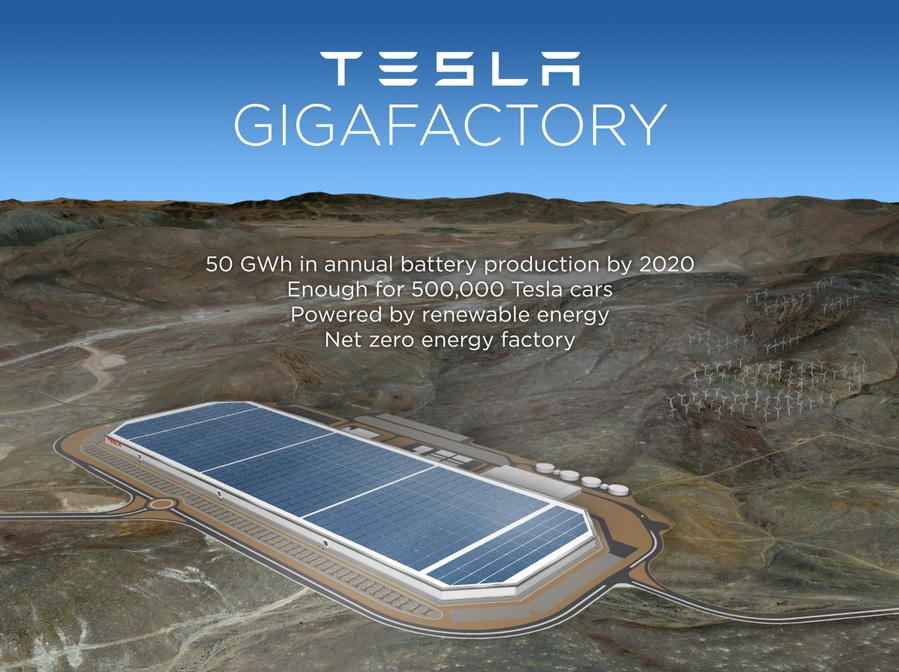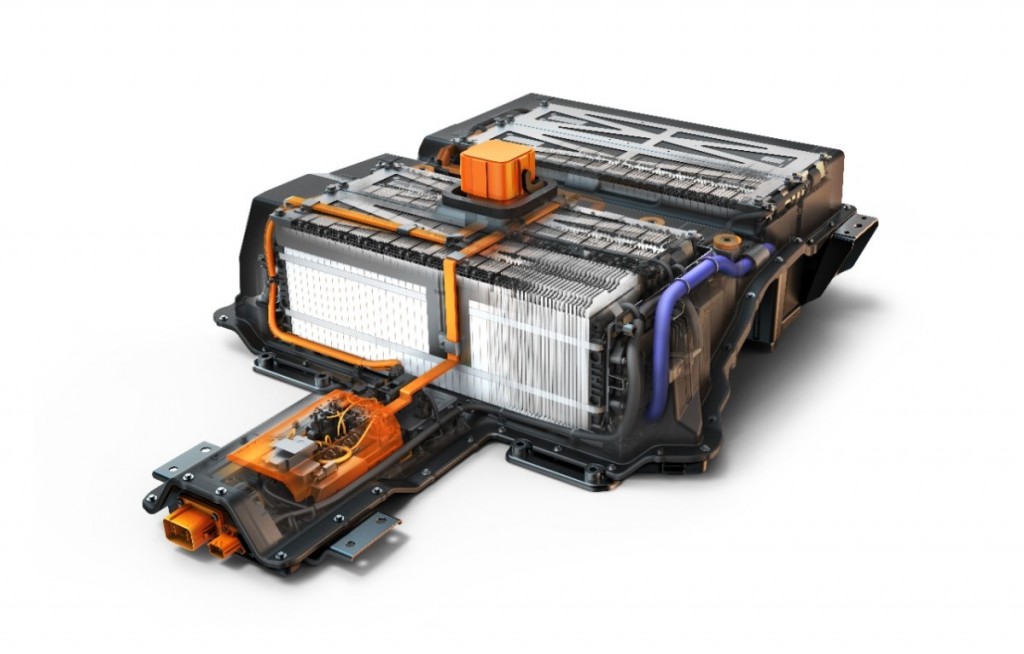The division is pretty clear: nickel-metal-hydride batteries are for use only in hybrids--at least those from Toyota, which has used more of the batteries than any other maker by far.
Lithium-ion cells, on the other hands, are the only ones with sufficient energy density to be used in the much larger packs of battery-electric and plug-in hybrid vehicles.
That's how it's been for most of a decade.
DON'T MISS: Tesla Gigafactory: New Photos Show Progress On Battery Plant In Nevada
But suppose researchers could radically boost the energy density of old-fashioned nickel-metal-hydride cells?
That might change the equation substantially--and that's exactly what research by chemical supplier BASF aims to do.
In recent article in Technology Review, author Kevin Bullis dangled the prospect of NiMH cells with as much as 10 times today's energy density--making them practical for use in plug-in cars of all sorts.

Rendering of Tesla battery gigafactory outside Reno, Nevada, Sep 2014
The goal is a cost per kilowatt-hour of less than $150, better than even the rumored costs of high-volume commodity-format cells to be produced by Panasonic and Tesla Motors at the Nevada gigafactory now under construction.
The BASF research centers on changes to the microstructure of the nickel-metal electrode, making it more durable and hence requiring less of it to be used for the same power production.
Its researchers have already produced NiMH cells with double the energy density of today's cells, bringing them to 140 watt-hours per kilogram.
ALSO SEE: Solid-State Batteries For Electric Cars: 'Great Potential,' VW CEO Says
That's less than the 230 watt-hours of the best Li-ion cells today, but the lighter weight of those cells is offset by two factors.
The first is that lithium-ion cells degrade over time, at higher rates than do NiMH cells. Accordingly, Li-ion battery packs must include extra cells to offset some of that loss.
Second, NiMH batteries are generally considered to be safer than Li-ion chemistries due to the lack of a liquid electrolyte that can leak or spill in severe accidents.

Lithium-ion battery pack for 2014 Chevrolet Spark EV electric car
The safety measures required to prevent that add weight to the battery pack beyond just that of the more lightweight lithium-ion cells.
Meanwhile, BASF's researchers continue to work to improve the energy density of their experimental cells still further.
They're targeting an ultimate improvement of 10 times the capacity today's nickel-metal-hydride batteries.
MORE: Advances In Lithium-Sulfur Batteries Offer Promise For Electric Cars
While lithium-ion is still widely presumed to be the odds-on favorite for any battery-electric vehicle, the BASF work only underscores the huge efforts in energy-storage research and development across the globe.
Most won't pan out, but inevitably some will--and cars with plugs and their drivers will be the beneficiaries.
_________________________________________________













